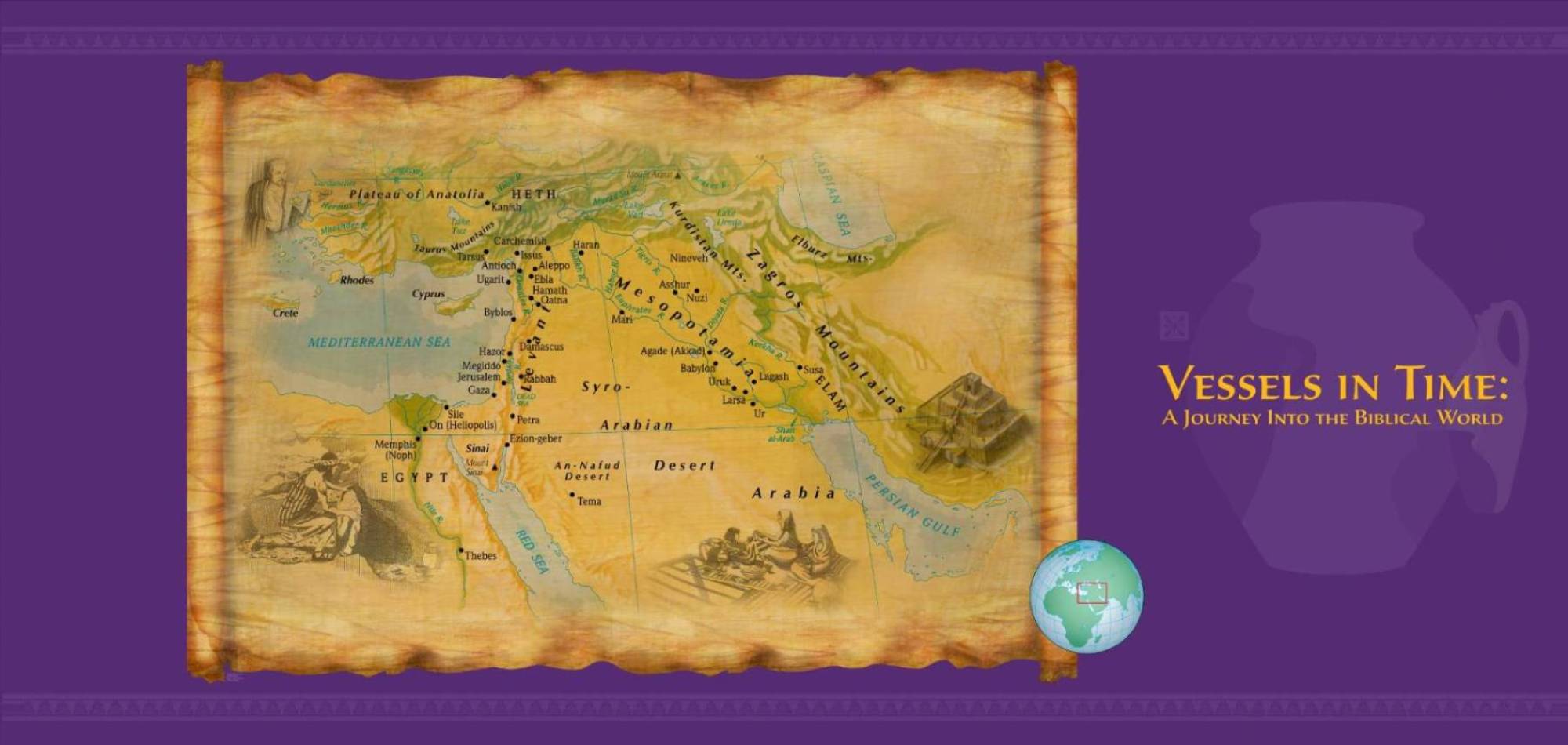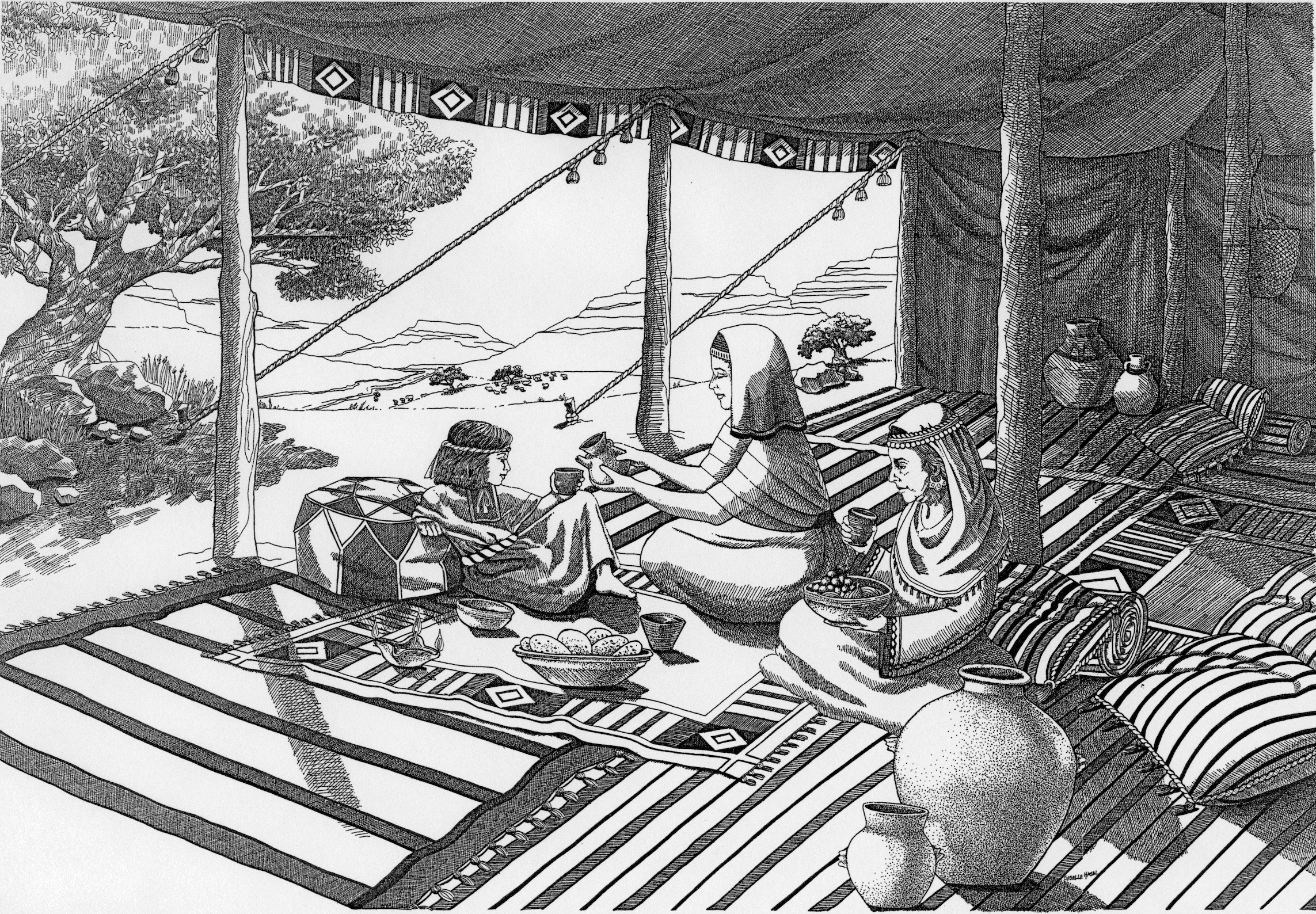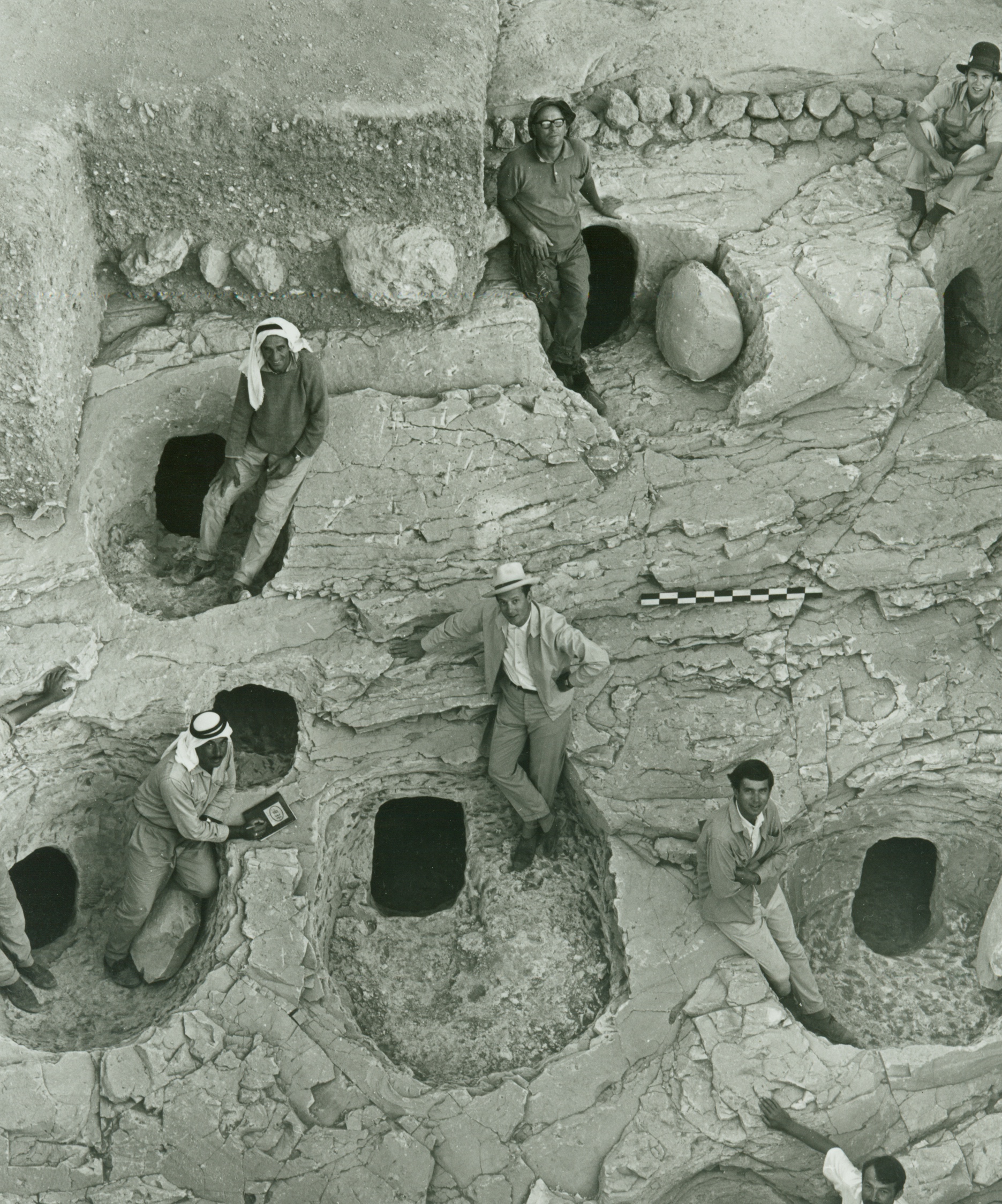
Pastoralism in Rural Canaan/Death and Burial
Early Bronze Age IV (2400 - 2000 B.C.)
After the collapse of urbanism, there was a major shift from the city to pastoral
and rural life. Ruralism in the Early Bronze IV period meant that many lived in tents,
much like the Bedouins of today. Salvage excavations at the cemeteries of Jebel Qa'aqir,
'Ain Samiyah, and Khirbet el-Karmil south of Hebron uncovered hundreds of shaft tombs
arranged in straight rows that were dug into the hillside. Most of the tombs contained
multiple burials, indicating that they were family tombs. All 46 skeletons excavated
at Jebel Qa'aqir were disarticulated, which meant that the bones were not in their
proper order. Archaeologists have suggested that as families moved from the highlands
into the lowlands in the summer months, the deceased were buried and their bones later
returned to the family burial ground. The biblical phrase "to be gathered to ones
fathers" is an echo of this practice of secondary burial.



